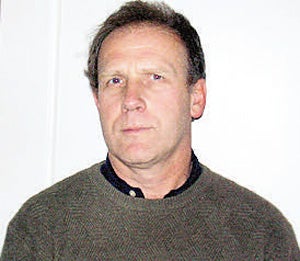Roger Trapp: An effective use of technology is vital for small businesses

Your support helps us to tell the story
From reproductive rights to climate change to Big Tech, The Independent is on the ground when the story is developing. Whether it's investigating the financials of Elon Musk's pro-Trump PAC or producing our latest documentary, 'The A Word', which shines a light on the American women fighting for reproductive rights, we know how important it is to parse out the facts from the messaging.
At such a critical moment in US history, we need reporters on the ground. Your donation allows us to keep sending journalists to speak to both sides of the story.
The Independent is trusted by Americans across the entire political spectrum. And unlike many other quality news outlets, we choose not to lock Americans out of our reporting and analysis with paywalls. We believe quality journalism should be available to everyone, paid for by those who can afford it.
Your support makes all the difference.For a quarter of a century, the oil company Shell has been helping young would-be entrepreneurs get started in business. Shell LiveWIRE began in the Strathclyde region of Scotland in 1982 in an effort to combat the high youth unemployment of the area caused by the recession of the early 1980s. It was rolled out across the UK later that decade, and has since been introduced to countries around the world, to the extent that five million people around the globe have had contact with the scheme's programmes.
The scheme, aimed at 16- to 30-year-olds starting their own businesses, has this year undergone a relaunch. Among the new initiatives is a monthly cash award that will allow up to five aspiring entrepreneurs to receive £1,000 to help them get their business ideas started. This is in addition to the well-established Young Entrepreneur of the Year award, now worth £10,000 to the winner.
Moreover, the scheme also includes a package of resources aimed at providing the enterprising youngsters with the sort of practical help they need to make a go of a business. Accessible via the internet, this package includes a guide to help young people understand their strengths and weaknesses, a discussion forum that can be used to ask experts for advice as well as assistance with market research, business plans and legal information.
Shell LiveWIRE has already helped more than 600,000 people start up in business and it is likely that these new web tools and the other initiatives will boost that number significantly. In 2000, the then fledgling smoothie drinks maker Innocent was a finalist for the Young Entrepreneur of the Year award, so it is clear that a boost from this scheme can be the first step on a long road.
This is not the only programme of its kind. For instance, the Prince's Trust's business programme has also been going some time and has helped about 70,000 disadvantaged people make a start.
The point is that there are lots of young people prepared to have a go at running their own business. Certainly, for many it is a last resort, when all else has failed or when there is no job or training scheme. But for others it represents a sensible choice. Many in the Prince's Trust programme, in particular, have circumstances that mean that they cannot easily take a conventional full-time job.
Some of them go on to become sizeable businesses. But many more remain pretty much what they were when they started – alternatives to a job.
There is a tendency to decry such enterprises as "lifestyle businesses". But there is nothing shameful in being a business of one. For many – whether they are a fresh-faced school-leaver or a weary refugee from corporate life – it is the best way of maintaining some kind of control over their lives. Not only that, but the advance of technology, the continuing high costs of employing personnel and the desire of modern organisations to be more flexible than large workforces allow are helping to create a world in which one-person businesses can thrive.
All that is really holding them back is access to the sort of equipment and support that is commonplace in large organisations. The first part is increasingly being dealt with. Thanks to intense competition in the mobile telecommunications field, in particular, it is possible for small businesses and even the self-employed to have access to BlackBerrys and similar pieces of equipment, while the arrival of web-based applications is providing access to top-class assistance in such vital areas as finance and legal advice. These applications, grouped under the new buzzword of "cloud computing", mean that very small businesses can not only attain what was once unavailable to them but can do so at an affordable price.
But, as those youngsters getting started on LiveWIRE and Prince's Trust programmes would agree, it is not just the difficulty of gaining access to technology that makes it hard to run a business. It is the little things – like posting parcels. Big businesses have mailrooms that deal with couriers and have franking machines. Small businesses have to queue at the post office. Which is where WinWeb, a 24-hour support service for new and small businesses created by the entrepreneur behind the internet service provider that became Tiscali, comes in. Among its offerings are book-keeping, public relations and marketing assistance, phone answering – and a parcel pick-up service. This alone demonstrates how Stefan Topfer, WinWeb's creator, understands the needs of small businesses better than any number of government officials. As he says, "the most important thing" is to reduce the mortality rate of small businesses. Anything practical that enables them to focus on the business and not worry about the peripherals is likely to be more effective in that than tax breaks or incentives.
Join our commenting forum
Join thought-provoking conversations, follow other Independent readers and see their replies
Comments